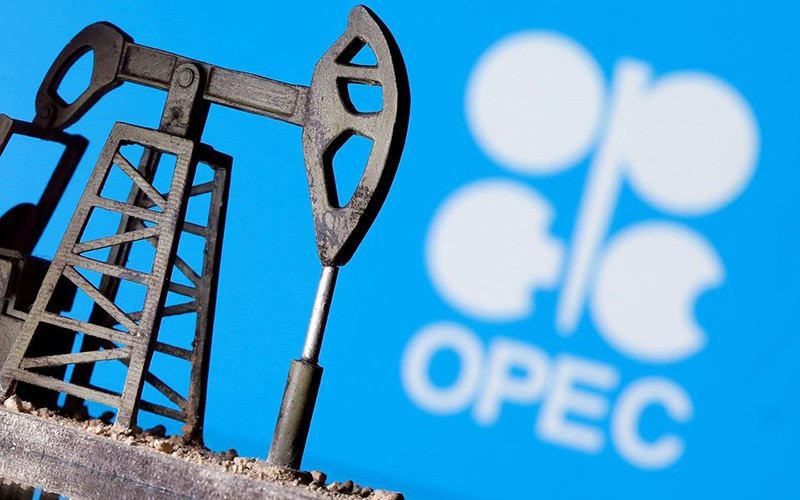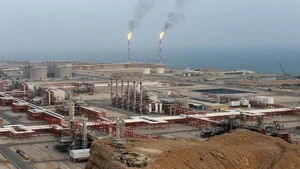In the context of oil prices continuing to fall and oversupply, OPEC+'s agreement on production reduction aims to maintain stability and long-term direction for the oil market. The above move of OPEC + has been considered a proactive approach. OPEC+ believed that this change is in line with the continuous commitment of the Organisation and its partners, led by Russia.
According to revised commitments on the table of figures released by OPEC, Saudi Arabia will maintain crude oil production at 10.478 million bpd, while Russia will cut daily output by 650,000 bpd, to 9.828 million bpd since January 2024. OPEC’s note stated that this was the level of production required for February 2023, which was assessed by the average of secondary sources, and may be revised in June 2023, as Russia is coordinating with secondary sources for production data updates.
According to revised commitments on the table of figures released by OPEC, Saudi Arabia will maintain crude oil production at 10.478 million bpd, while Russia will cut daily output by 650,000 bpd, to 9.828 million bpd since January 2024.
To decide on production cuts, OPEC+ members had to negotiate a base output that lasted longer than expected. Base output is the key data for calculating production cuts and quotas.
The most influential members and largest producers in the Gulf, led by Saudi Arabia, tried to persuade countries to produce below baseline in Africa, such as Nigeria and Angola, to set more realistic output targets. However, these countries were opposed to lowering the base output level.
To "save" oil prices, Saudi Arabia announced that in July 2023, the country will reduce production by 1 million bpd and can be extended if Riyadh deems it necessary.
According to Saudi Energy Ministry, the country’s oil output will fall to 9 million bpd in July from 10 million bpd in May, the largest drop in recent years. Some other members such as Iraq, Oman, Algeria, Kuwait and UAE also announced voluntary reductions in production at respective levels of 211,000 bpd, 40,000 bpd, 48,000 bpd, 128,000 bpd and 144,000 bpd, until the end of 2024.
OPEC+ countries produce about 40% of the world's crude oil, so the group's policy decisions can have a big impact on oil prices. In April, several OPEC+ members agreed to voluntarily cut production by more than 1 million bpd.
OPEC+ countries produce about 40% of the world's crude oil, so the group's policy decisions can have a big impact on oil prices. In April, several OPEC+ members agreed to voluntarily cut production by more than 1 million bpd.
This move helped keep oil prices stable in the short term but did not bring about a long-term recovery. Following the decision to cut voluntary output by 1.16 million bpd in the April meeting, OPEC+ has been implementing a policy of cutting a total of 3.66 million bpd, equivalent to 3.7% of global demand.
Oil producers are struggling to cope with plunging prices and volatile markets amid the ongoing conflict in Ukraine, which has affected economies around the world.
Since the beginning of the year, Brent oil prices have fallen about 15%, as weak economic growth in the world's top oil-consuming countries, such as the US and China, has pushed back the outlook for fuel demand.
The uneven recovery of the Chinese economy and concerns about the risk of public debt default in the US put pressure on oil prices, of which, the asynchronous recovery of the Chinese economy is the biggest challenge, according to energy consultancy Energy Aspects.
However, according to Jorge Leon, Senior Vice Present of Oil Market Research at Rystad Energy, rising oil prices could further fuel inflation in Western countries, prompting central banks to keep increasing interest rates, which are detrimental to the global economy and oil demand. OPEC+'s latest decision to cut production is seen by analysts as a clear signal that the group is ready to support prices and prevent speculation. With the role of leading the "black gold" market, OPEC + is ready to offer packages of measures to stabilise oil prices.
















